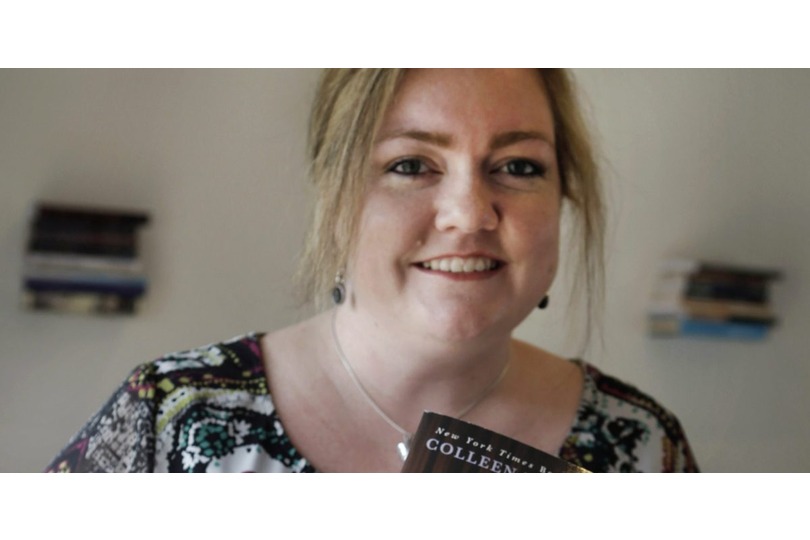Despite Being a Bestselling Author, Colleen Hoover Says She is Suffering from the ‘Imposter Syndrome’
on Oct 12, 2022

It doesn't take long on TikTok until you come upon a pastel pink book with a lily sprig. The 2016 book It Ends With Us by Colleen Hoover, which is a favorite among the #BookTok community, has been at the top of the New York Times bestseller list for paperback fiction for 74 weeks in a row.
According to Alexandra Alter's recent New York Times piece on the author, Hoover has skyrocketed to stardom and maintained it with 1.1 million TikTok followers and 20 million books sold.
Hoover does not, however, believe that her success is secure. She admitted to Alter that she suffers from "the world's worst case of imposter syndrome."
I become so jealous when I read other people's books. She continued, crediting her success to her fan base, saying, "I'm thinking, 'Oh, my God, these are so much better, why are mine selling the way they are?' That's not me, she continued. What sells at the moment is dictated by the readers?
Hoover's success is astounding, says Alter, given that several of her best-sellers were released years ago. Hoover already had a large following, but the rise of TikTok during the quarantine made her one of the most well-known names among readers, many of whom were just learning about her.
Therapists Pauline Clance and Suzanne Imes first recognized the sense that you haven't earned your achievement in 1978. According to clinical psychologist Emily Hu, it's simpler to feel like an impostor when you don't see someone who looks like you or comes from a similar background achieving the same degree of success.
According to research, cultures or organizations that prioritize qualities like "brilliance" are more likely to cause imposter syndrome in women, especially those of color.
According to Sarah-Jane Leslie, a philosophy professor, and research coauthor, "it's more difficult to come up with instances in popular culture of women, particularly women of color, who, like a Sherlock Holmes or a Dr. House, have that type of exceptional raw brilliance."
It implies that imposter syndrome is more of a structural problem than a personal issue, linked to a lack of representation. In the Harvard Business Review, Ruchika Tulshyan and Jodi-Ann Burey claim that the idea of impostor syndrome wasn't developed with "institutional racism, classism, xenophobia, and other prejudices" in mind.
Hoover is writing amid a sea of James Pattersons and other white guys who have long dominated bestseller categories despite the fact that she is a white woman. Publishing is a particularly homogenous and white industry, and Hoover's genre—books written by women for other women—has long been derided or disregarded by the literary community. According to research, males also tend to read less of them.
Even though Hoover is an unquestionable success story, it's not surprising that she sometimes feels a little out of her element because the canon that solely elevates white male authors as geniuses has a long history of doing so.



.jpg)






.jpg)

.jpg)
.jpg)
.jpg)
.jpg)
.jpg)










Sorry! No comment found for this post.